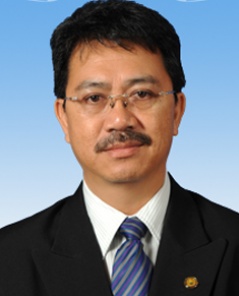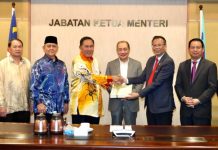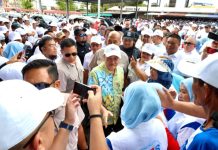KOTA KINABALU: The needs of the people of Sabah due to the negative impact of Covid-19 are largely being met to a certain extent from multiple fronts as reflected in the allocations made in the recently revealed National 2021 Budget, said Deputy Chief Minister, Datuk Dr Joachim Gunsalam.
From rural development to issues of cost of living, from education to digitalisation, from infrastructure to Bumiputera development and various industries, funds are given under various ministries and agencies. In the light of this, it is advisable for the relevant state agencies to go through the details and identify the various avenues to access funding,” said Gunsalam.
The National 2021 Budget unveiled in Parliament on Friday sought RM322.54 billion in allocation for which Sabah has been given RM5.1 billion for development, about RM100 million less than that of 2020. It is the hope of Sabahans that more development funds be allocated to Sabah, being the poorest state in the country.
With regards to industrialization, Sabah stands to benefits from the sizeable allocation given. This include the RM1 billion incentives for high-value technology development and RM0.5 billion under the High Technology Fund. Both will be administered through Bank Negara Malaysia.
“The government wants to make Malaysia a destination for high-value economic activities, and I see this as an avenue for Sabah to push our potential development in higher value added industries especially the bio-chemical agenda. In addition the grants to assist SMEs to digitalise and automise coupled with the RM1.2 billion micro credit schemes would surely help the SMEs.
On improving infrastructure in industrial parks, Gunsalam said the National 2021 Budget provides for RM100 million and an additional RM42 million for improving internet connectivity.
“These are relevant to industrial parks in Sabah such as Palm Oil Industrial Culture (POIC) in Lahad Datu which has been seeking funds to upgrade its roads and other infrastructures,” he added.
For officials involved in the promotion of Bumiputera well-being, the Deputy Chief Minister drew their attention to the RM11.2 billion for narrowing the disparity gap, RM4.6 billion to empower Bumiputera entrepreneurs and RM95 million micro credit scheme for Bumiputera women entrepreneurs.
“These figures are all macro allocation. It is up to the officials to quickly identify the target groups who qualify for the funds and help them to access them.”
The Minister also added that the training programs to enhance locally manufactured products and the RM35 million to promote locally made products will augur well for the state. It is pertinent for Sabah to capitalise on these initiatives to encourage more production and sale of the state’s locally made products such as traditional handicrafts and local foods.






